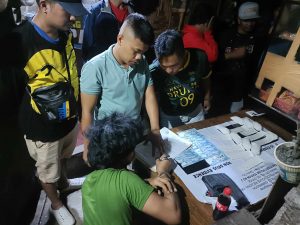The City government has earmarked P41 million for the construction of an institution aimed to provide services to children with special needs.
During yesterday’s special session, the City Council approved on final reading the proposed ordinance establishing the landmark Davao City Special Needs Intervention Center for Children.
The center will provide educational and therapy services to children with special needs.
It is an initiative of the local government to “address the concerns and skills deficit brought about by intellectual disability, global development delay, autism spectrum disorder, communication disorders, attention deficit/hyperactivity disorder, specific learning disorders, motor disorders, visual and hearing impairment, and other neurodevelopmental disorders; and related behavioral, sensory, and cognitive delay.”
The center will also offer various programs and services as an approach to prepare the children with special needs on activities in a mainstream society.
Among the programs eyed to be institutionalized in the state-of-the-art center include allied medical services, such as occupational therapy, physical therapy, speech therapy, and aqua therapy; and special education services that will offer early intervention and transition program.
The intervention center will also serve as a resource center for inclusive education that will support children with special needs integrated in regular schools, as well as extending its services by assisting the children in the conduct of school-based in-service training, producing appropriate teaching materials and conducting continuous assessment of children with special needs.
“Hopefully by next year… the center will be operational already,” said Councilor Antoinette Principe, the proponent of the ordinance.
The P41 million budget will be taken from the annual development fund (ADF) of the city for the calendar year 2020.
The building will be located at the Alternative Learning System (ALS) compound beside the People’s Park along Pelayo Street, Barangay 4-A, Poblacion District.
Principe bared that there is already a plan perspective for the design of the building prepared by the City Architect that is subject of the approval of the city mayor.
An ocular inspection was conducted last year, and the center will be occupying approximately 1,000 square meters in the area.
The ordinance identifies the children with special needs as those who are gifted and fast learners, disabled, impaired and handicapped children in need of special education as he/she differs from the average child in terms of mental characteristics; sensory abilities; neuromuscular or physical characteristics; multiple handicaps; and/or neuro developmental disorder.
Admission
The ordinance states that the services of the center “shall be given to the bona fide residents of Davao City who belong to indigent families or low income families, subject to rules and regulation of admission and retention prescribed by the council or the City Social Services and Development Office (CSSDO).”
“Libre sya (it’s free) for the children with special needs who belong to the indigent sector of the city,” Councilor Principe said, stressing that there are families whose financial capacity could not afford to send or bring their children for therapy.
The children to be admitted on the center will range from ages 0 to 6 years old, as the center will so far offer services for early intervention for the children with special needs.
With the early intervention provided by the center, children with special needs will have the ease to enroll or admit themselves to the special education (SPED) program of the Department of Education.
Inventory and target clients
So far, the population of children with special needs in the city has yet been revealed as there is “no clear tagging and consensus” yet. But the government is planning to create a data banking with the help of the barangay health workers and social workers in the city.
The target children to be hosted by the center will also be dependent as to the number of health workers and social workers that will be hired to center for its operation.
Principe stressed “this will really be a big help not only for the children but also including the parents who are having a difficult time to send their children to be given intervention.”
CSSDO head Maria Luisa Bermudo affirmed commitment that her office will be the one to supervise the entire operation of the center.
Bermudo also stressed that groups of parents and various associations and advocates of children with special needs will become the partner of the center in providing different services.




